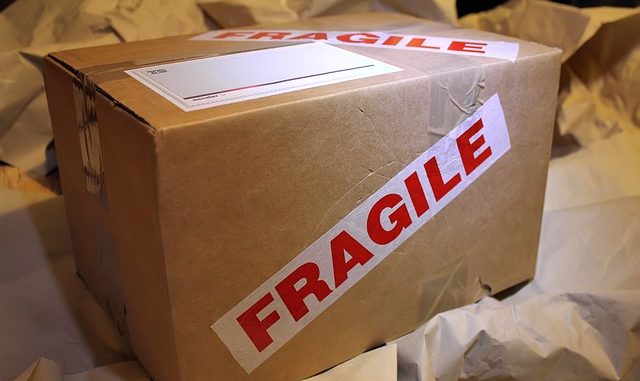
Like first dates, Christmas and childbirth, everyone, it seems, has a courier horror story. My photographer chum Ade bought a new lens recently via ebay and requested it be delivered to a shop so he could collect at his leisure.
After a few days he checked Hermes’ tracking system, which claimed it had left the depot but couldn’t be delivered because of a “security issue”. After that, it vanished. Web chat after web chat ensued, all involving promises they’d “sweep the depot” – nice earnest turn of phrase, that – and all ending with an abrupt disconnection.
Meanwhile he visited the shop, who said no one had tried to deliver anything. Hermes kept sweeping their by now squeaky clean depot and suggested Ade contact packlink.es, the Spanish company who’d booked them. They weren’t interested.
The ebay seller isn’t answering his emails. ebay will refund eventually, probably, after several more days have passed, but meanwhile Ade is lensless and not taking pictures of me, which I think we can all agree is the central tragedy of this whole sorry story.
Companies fragmented, work outsourced, no one to take the blame, shareholders to take the profit. How very modern.
Hermes and Yodel call their couriers self-employed. They’re paid by the delivery. Mate of mine worked for Yodel and got 47p a parcel, and only then if she managed to deliver it. If no one answered the door she’d wasted her time and petrol, although at 47p a parcel it’s tempting to argue she was wasting both anyway.
When someone’s time is valued so poorly, the temptation to occasionally take a parcel rather than the 47p must be overwhelming. That’s the trouble with treating humans like idiot slave drones; eventually they run out of patience and goodwill. Corners are cut, parcels slung over hedges. Who can blame them? I’m self-employed, but I’m paid well, able to put money aside in case of sickness or mishap. If I were working all hours to do a high-pressured, poorly paid, thankless job, I‘d be way more likely to get sick, and then God help me, for Yodel won’t.
Yet when Craig Mackinlay visited the Broadstairs sorting office last Christmas, and my husband, then a postman, asked how he expected Royal Mail to deliver ever greater profits to its shareholders, Craig cited Yodel as a business model to emulate. Oh, but of course: not bad enough for your lens to go awol; next it’ll be your passport or pin number. Not to worry: you can always complain to a dozen different companies on those nifty little web chats, all passing the blame and cutting you off when you bore them. Sounds idyllic.
The increase in online shopping means courier delivery services are increasingly vital. It costs more to send parcels through Royal Mail because they pay their staff a decent hourly wage, along with sick pay, holiday pay and pensions. Their staff are carefully vetted; no one with a criminal record is employed. Yet since privatisation they are expected to increase their profits every year for shareholders. Royal Mail has been operational for more than 500 years. They can’t increase profits by growing their service, so instead they must cut. Fewer workers are expected to do vastly more work.
And so the job of postman, which has always seemed so seductively charming, fresh air and gentle strolls, petting cats, cheery chat, has become a pressurised abomination. More postmen and women are getting sick, having breakdowns, leaving to do anything else. A computer tracks their rounds now, noting how long each footstep takes. Now they’re allowed one minute to get a signature and hand over a parcel. Heaven forfend they should wait for someone less able bodied to reach the door, or stop to chat with the lonely
Aside from the horrifying human cost, when the stress breaks them it’s the public purse that must pay for their recovery. Public risk: private profit. It stinks.
We must rediscover a system that venerates humanity rather than targets.

